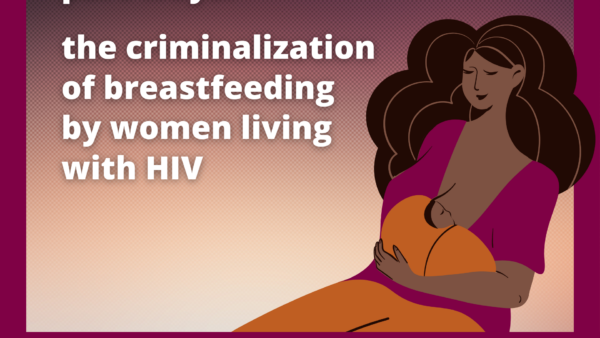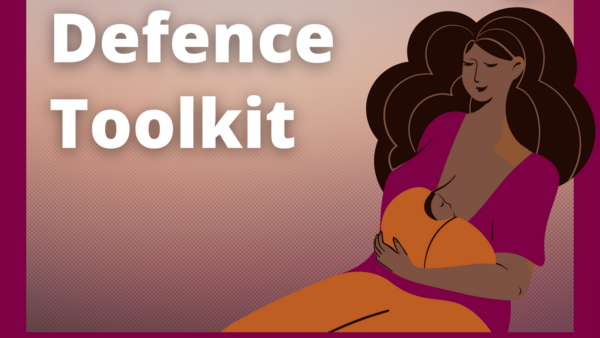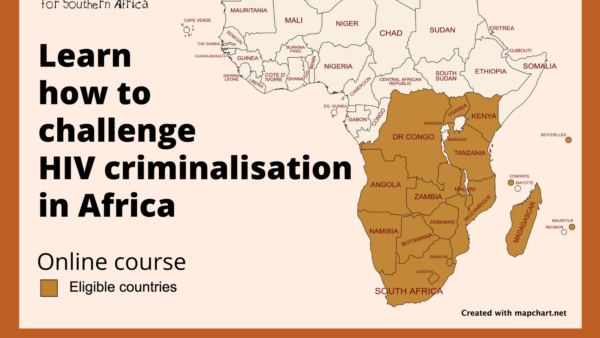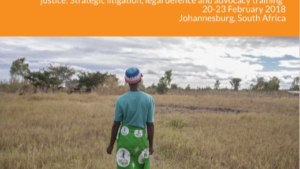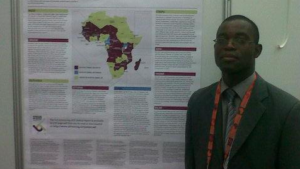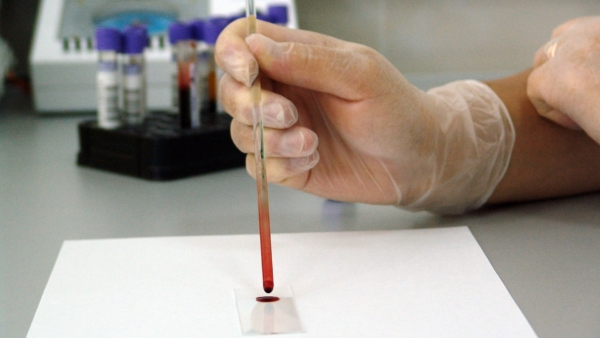Overview
Botswana has both communicable disease (Article 184 of the Botswanan Penal Code) and public health laws that apply to people living with HIV, although only the 2013 Public Health Act has HIV-specific provisions.
Section 184 makes it an offence for anyone to ‘unlawfully or negligently’ commit an act which they know or believe is likely to spread the infection of any ‘disease dangerous to life’.
There have been at least two cases reported in Botswana. The first case, reported in 2007, involved a state lawyer being charged under section 184 for allegedly having unprotected sex with a woman without disclosing his status. Notably the woman was also heavily intoxicated which raises a question about whether she was able to consent to sex, however the man was not charged for sexual assault. In 2008 the man was acquitted after the court ruled that it had not been proven that a condom was not used.
The second case, reported in 2013, a woman was accused of breastfeeding a neighbour’s baby without her consent, leading to criminal prosecution for common nuisance with a possible enhancement under section 184 if transmission occurred. The outcome of the case is not clear.
In 2013, Botswana introduced a Public Health Act that singled out people living with HIV. Under Section 116, legal action can be taken against a person who is aware of their HIV status and fails to ‘take all reasonable measures and precautions to prevent the transmission of HIV to others’ or places ‘another person at risk of becoming infected with HIV’. The Act also specifically requires people living with HIV who are aware of their status to ‘inform in advance any sexual contact’, under the threat of medical and psychological assessment, restrictions on behaviour or movement, and isolation. The publication of any information on proceedings under this section are prohibited.
Section 58 of the Act also criminalises ‘wilful exposure of another to a communicable disease without taking proper precautions against spreading the disease’, although ‘proper precautions’ are not defined.
Since the Public Health Act was passed, we are aware of an increase in legal advice sought by potential complainants and defendants, although no case appears to have reached court.
In addition, the Penal Code was amended in 1998 to introduce new penalties for persons convicted of rape. Under Article 142, anyone who is found to be HIV-positive are found to have committed an aggravated crime whether or not the defendant was aware of their HIV-positive status at the time of the offence. However, in 2000 the Court of Appeal (Makuto v State) ruled that enhanced sentencing on basis of HIV status is only constitutional and non-discriminatory if based on known HIV-positive status at the time of the offence.
Laws
Penal Code
Section 184. Spreading infection
Any person who unlawfully or negligently does any act which is, and which he knows or has reason to believe to be, likely to spread the infection of any disease dangerous to life, is guilty of an offence.
Penal Code
Article 142. Punishment for rape
(…)
(4) Any person who is convicted under subsection (1) or subsection (2) and whose test for the Human Immunodeficiency Virus under subsection (3) is positive shall be sentenced:
(a) to a minimum term of 15 years’ imprisonment or to a maximum term of life imprisonment with corporal punishment, where it is proved that such person was unaware of being Human Immunodeficiency Virus positive; or
(b) to a minimum term of 20 years’ imprisonment or to a maximum term of life imprisonment with corporal punishment, where it is proved that on a balance of probabilities such person was aware of being Human Immunodeficiency Virus positive.
Public Health Act
Section 58. Offence of exposure of infected persons and things
(1) A person who-
(a) while suffering from any communicable disease, wilfully exposes himself or herself to another person, without proper precautions against spreading that disease in any street, public place, shop or public conveyance;
(b) being in charge of any person suffering from a communicable disease, exposes such person in a manner stated in paragraph (a); or
(c) gives, lends, sells, transmits or exposes, without previous cleansing, any bedding, clothing, rags or other articles which have been exposed to infection from any such disease, commits an offence.
(2) Notwithstanding subsection (1), the proceedings under this section shall not be taken against persons conveying, with proper precautions, any bedding, clothing, rags or other articles for the purpose of having the bedding, clothing, rags or other articles cleansed.
(3) For the purposes of this section, ‘‘public conveyance” includes any train, coach, omnibus, motorcar or any vehicle of any kind, or any aircraft, if it pliers for hire or is used by members of the public.
Section 116. Transmission of HIV
(1) A person who is aware of being infected with HIV or is carrying and is aware of carrying HIV antibodies shall —
(a) take all reasonable measures and precautions to prevent the transmission of HIV to others;
(b) inform, in advance, any sexual contact or care giver or person with whom sharp instruments are shared, of that fact; and
(c) not place another person at risk of becoming infected with HIV.
(2) A person who is aware of being infected with HIV or who is carrying and is aware of carrying HIV antibodies shall not place another person at risk of becoming infected with HIV.
(…)
(9) The Director or any officer representing the Director may, in writing, apply to a magistrate for an order where the Director reasonably believes that a person infected with HIV —
(a) is not complying with this Part;
(b) knowingly or recklessly places another person at risk of becoming infected with HIV without the knowledge of that person of the infected person’s HIV status; or
(c) is likely to continue the behaviour referred to in paragraph (b).
(10) For the purpose of subsection (9), a magistrate may make any or all of the following orders —
(a) an order that the person infected with HIV undergo such medical and psychological assessment as the Minister determines;
(b) an order imposing restrictions on the behaviour or movements of that person for a period not exceeding 28 days; or
(c) an order requiring that the person be isolated and detained by a person, at a place and in the manner specified in the order for a period not exceeding 28 days.
(…)
(15) Proceedings under this section shall be in camera.
(16) A person shall not publish or cause to be published a report of, or any information relating to, the whole or any part of the proceedings under this section.
(17) An isolation order made under this section shall be authority for the person named in the order to be detained by the person and at the place specified in the order.”
Section 118. Isolation Orders
(1) Where the Director has reason to believe that an arrest may be necessary in order to enforce an isolation order made under section 116 (10), the Director may, in writing, apply to a magistrate for a warrant authorising a police officer to carry out an isolation order.
(2) The Director may, in writing, direct a person authorised for the purpose to assist a police officer in carrying out an isolation order.”
Further resources
To address these challenges and barriers which hinder an effective HIV response, the Ministry of Health and Wellness, in partnership with the United Nations Development Programme (UNDP), embarked on a process to review and map the current legal, regulatory and policy framework in Botswana and analyse the extent to which it supports or hinders the national and local responses to HIV, AIDS and TB. This report assesses laws, regulations and policy guidelines, awareness of rights and access to justice as well as law enforcement in the context of HIV, AIDS and TB.
Acknowledgements
Our thanks to UNAIDS for their research assistance to confirm current relevant legislation.
HIV Justice Network's Positive Destinations
Visit the Botswana page on Positive Destinations for information on regulations that restrict entry, stay, and residency based on HIV-positive status, as well as access to HIV treatment for non-nationals.
